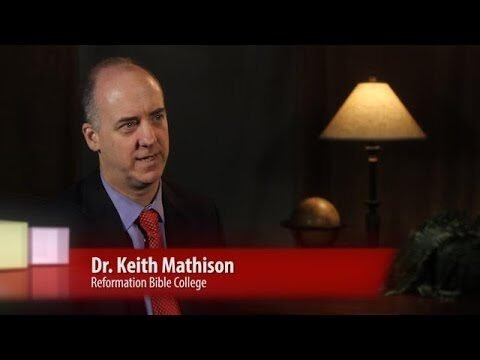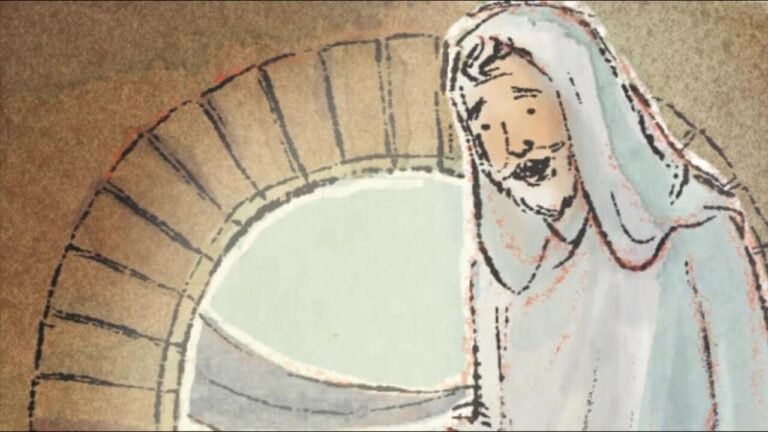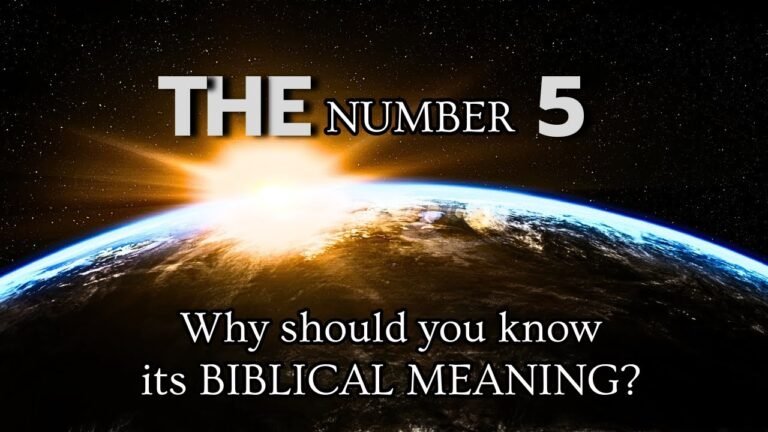Understanding the Definition of Eschatology
Eschatology, a term derived from the Greek word eschatos, meaning last, delves into the study of end times and ultimate destinies, both in religious and philosophical contexts. This fascinating field explores concepts of judgment, resurrection, and the final fate of humanity, providing insight into how various belief systems interpret the conclusion of existence. Understanding the definition of eschatology not only enriches our grasp of religious narratives but also prompts deeper reflections on our own lives and the world around us.
What does eschatology mean in the Bible?
Eschatology, rooted in biblical tradition, encompasses the study of ultimate realities concerning the end of times and the fate of humanity. It explores profound themes such as the immortality of the soul, resurrection, and the metaphysical journey of the soul after death. These beliefs guide individuals in their understanding of existence and the moral implications of their actions, revealing a deeper connection between life and the hereafter.
Beyond its religious implications, eschatology resonates with secular perspectives on life’s turning points and the inevitability of death. It invites reflection on how people confront their mortality and the legacy they leave behind. As a bridge between faith and philosophy, eschatology encourages a dialogue about purpose, transformation, and the mysteries that lie beyond our earthly experience.
Can you define eschatology in a single word?
Eschatology, derived from the Greek word for “last,” delves into the final aspects of existence, exploring what happens at the end of life. This theological study provides insights into the ultimate fate of individuals and the universe, focusing on profound themes that shape human understanding of mortality and the afterlife.
At the heart of eschatology are four critical components: death, judgment, heaven, and hell. These elements guide believers in contemplating their lives and choices, offering a framework for understanding the consequences that follow our earthly existence. Through this lens, eschatology invites deep reflection on moral living and the hope for what lies beyond.
What does the Oxford Dictionary define as eschatology?
Eschatology, derived from the Greek word “eschatos,” meaning “the last,” explores profound concepts surrounding the end of life and the conclusion of the world. This field of study delves into themes such as the final judgment and resurrection, particularly within Christian theology, offering insights into humanity’s ultimate destiny and the culmination of existence. By examining these ideas, eschatology invites contemplation on our place in the universe and the significance of our actions in the face of eternity.
Exploring the End Times: A Deep Dive into Eschatology
Eschatology, the study of the end times, has captivated human imagination across cultures and centuries. From ancient scriptures to modern interpretations, this field delves into humanity’s ultimate fate and the signs that precede it. As we explore various theological frameworks, we uncover a tapestry woven with hope, fear, and moral reflection, prompting individuals to ponder their place in the universe and the legacy they leave behind.
Throughout history, different religious traditions have offered unique perspectives on the end of days. In Christianity, the Book of Revelation paints a vivid picture of judgment and renewal, while Eastern philosophies often emphasize cycles of rebirth and enlightenment. These diverse narratives not only reveal the cultural contexts in which they arose but also highlight a universal quest for understanding life’s purpose and the inevitability of transformation. Such themes resonate deeply in contemporary society, where uncertainties about the future prompt a resurgence of interest in eschatological teachings.
As we navigate the complexities of modern existence, the insights gleaned from eschatology can serve as a guiding light. By reflecting on the potential outcomes of our collective actions and choices, we are encouraged to foster a sense of responsibility towards our world and each other. Ultimately, exploring the end times is not merely about fear or predictions; it’s an invitation to engage with profound questions about morality, existence, and the hope for renewal, driving us to create a future worth striving for.
Unpacking Eschatology: Concepts and Beliefs Explained
Eschatology, the study of end times and ultimate destinies, captivates the imagination with its profound implications for humanity. This field of theology explores various beliefs surrounding the final events of the world, addressing questions of existence, judgment, and the afterlife. Different religious traditions, from Christianity and Islam to Hinduism and Buddhism, offer unique perspectives on what lies ahead, shaping the moral and ethical frameworks of their followers.
Central to many eschatological beliefs is the notion of a final judgment, where individuals face the consequences of their earthly actions. In Christianity, this is often depicted as a personal reckoning with God, while in Buddhism, the cycle of rebirth emphasizes the importance of karma and moral living. These interpretations not only provide a glimpse into the future but also serve as guiding principles for ethical behavior in the present, fostering a sense of accountability and hope.
Moreover, eschatology invites individuals to reflect on the nature of time and existence itself. It challenges believers to consider their place in the universe and the legacy they will leave behind. As societies grapple with existential threats and environmental crises, eschatological themes resonate deeply, prompting a re-evaluation of priorities and a renewed commitment to stewardship. Ultimately, the study of eschatology not only addresses what may come but also enriches our understanding of life, purpose, and the interconnectedness of all beings.
The Study of Last Things: What Eschatology Reveals
Eschatology, the study of last things, invites us to explore the profound questions of existence, purpose, and destiny. By examining various religious and philosophical perspectives on the end of the world, we gain insight into humanity’s deepest fears and hopes. This exploration not only sheds light on our collective beliefs about what lies beyond death but also encourages reflection on how these beliefs shape our daily lives and ethical choices. The narratives surrounding our ultimate fate can inspire a sense of urgency, prompting us to live more meaningfully and compassionately in the present.
Moreover, eschatological themes often reveal the underlying values of different cultures and traditions, highlighting the common threads that connect us all. Whether through visions of paradise, apocalyptic warnings, or cycles of rebirth, these stories resonate with our innate desire for understanding and connection. By engaging with eschatology, we not only confront the mysteries of life and death but also foster a greater appreciation for the diverse ways humanity seeks to comprehend its place in the universe. In doing so, we cultivate a sense of hope that transcends individual beliefs, uniting us in our quest for meaning and purpose.
Eschatology Unveiled: Insights into Humanity’s Final Chapter
As humanity navigates the complexities of existence, eschatology emerges as a profound lens through which to examine our ultimate fate. This branch of theology, often intertwined with philosophy and ethics, invites us to ponder the end times and what lies beyond. It compels us to confront existential questions about our purpose and the legacy we leave behind, urging reflection on the moral frameworks that guide our lives today.
The narratives of various cultures and religions provide a rich tapestry of insights into what the end might entail. From apocalyptic visions to hopeful resurrections, these stories shape our understanding of justice, redemption, and the human condition. They challenge us to engage with the themes of renewal and transformation, emphasizing that endings can also signify new beginnings. As we explore these diverse perspectives, we uncover common threads that bind us in our search for meaning amid uncertainty.
Ultimately, eschatology serves not only as a study of the end but also as a catalyst for change in the present. By contemplating our collective future, we are inspired to act with greater purpose and compassion. This exploration encourages us to envision a world that transcends fear and despair, fostering connections that empower us to create a legacy of hope. In understanding the final chapter of humanity, we can better appreciate the significance of each moment we share, igniting a desire to live authentically and meaningfully today.
Understanding the definition of eschatology opens the door to profound discussions about the ultimate fate of humanity and the universe. This field of study not only enriches theological debates but also invites us to reflect on our beliefs and values in light of life’s mysteries. By exploring eschatological concepts, we gain insights that can shape our perspectives and inspire us to seek deeper meaning in our existence.







